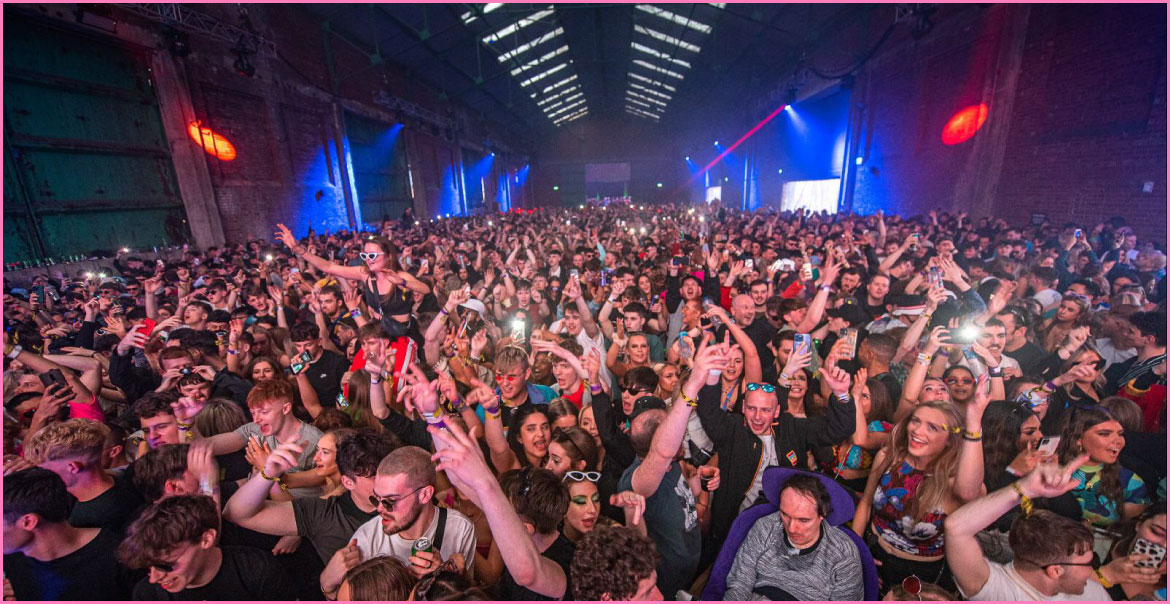Liverpool has always been at the forefront of cultural events, a fact that provided the impetus to us staging the largest pilot event programme in the UK as part of the national Events Research Programme (ERP).
Following the government’s announcement of our involvement in their research programme, a huge amount of work took place behind the scenes to bring the worlds of events and science together. In doing so, our focus was clear – how to open venues up safely again and let the night-time economy thrive once more.
Famed for our unique music heritage, it was only fitting that we featured a night-time music gig ‘Circus Presents The First Dance’ as well as an outdoor festival ‘Blossoms At Sefton Park’ to form part of this ground-breaking pilot project.
As well as supporting our residents with public pilot projects, we were also proud to host a unique business event – ‘Change Business For Good’ designed exclusively to support the return of the corporate sector.
The results…
Liverpool Public Health officials and scientists found the city’s pilot events did not cause any detectable spread of Covid-19 across the region.
The city hosted four hugely successful events, with a total of 13,258 people attending. All attendees were required to take a lateral flow test ahead of the event – a negative test would allow them access. Five people with the Covid-19 virus were identified through this process and were not allowed to attend.
Ticketholders were encouraged to take a PCR test on the day of the event, and a second one five days later.
This process identified four people as possibly having the virus at an event; and a further seven people were identified with the virus four to seven days after they attended the event. Of those who tested positive – two attended the music festival, nine attended the nightclub and none attended the business festival. Many of the cases were friends who met outside of the events and may not have been infected at the event itself.
Everyone who tested positive was successfully followed up by the contact tracing team. Scientists found the testing, data and contact tracing systems worked well, with key information being available to public health teams before the events which allowed contacts of potential cases to be traced quickly.
The research team also found that between 25 per cent and 43 per cent of people returned a PCR test after the event, with the Sefton Park Pilot festival seeing three times the number of the other Liverpool pilots due to the incentive of winning tickets to future gigs.
Every Covid-19 test result for the 2.6m population of Cheshire and Merseyside was examined before and after the events, with 96 per cent of tickets linked to test results. The results showed there was no evidence of any substantial spread of the virus around the pilot events.
Covid-19 infections remained low in Liverpool with the pattern of variants being watched carefully.
The public health and science teams were cautiously optimistic that events could reopen reasonably safely with effective testing in place, with anyone feeling unwell being advised not attend.
Wearing face coverings or maintaining social distancing were not required at any of Liverpool’s pilot events.
Here’s what the Director of Culture Liverpool has to say…
[wpe_video width=”1024″ height=”500″]https://www.youtube.com/watch?v=JH9bEFzuvqw[/wpe_video]


